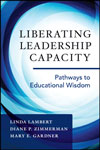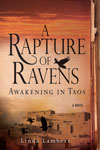« The Muslim Brotherhood & The Cairo Codex 8 | The Muslim Brotherhood & The Cairo Codex 10 »
The Muslim Brotherhood & The Cairo Codex 9
For the moment, let’s journey back to the revolution. From A Rapture of Ravens: Awakening in Taos: “Justine was gripped by deeply unsettling fears for her lover Amir, his leadership role with the youth of Egypt placing him at great risk of being arrested. The turmoil in the Middle East was unprecedented, clearly, so perhaps none of the old rules applied. This is a new game, in a new world bursting from the ground up, a popular revolution quickened by social media. But then what? She knew that if Mubarak were removed, Egyptians would still have the military and the Brotherhood, since no one else was as organized. Perhaps with Amir’s help, those who led the January 25th revolution would form themselves into a focused political movement. Perhaps.
Justine gripped the blanket more firmly around her chilled body and returned to the kitchen for the last dregs of coffee. On the couch, she curled her stocking feet under her and stared at the screen. Tahrir Square was crowded with thousands of Egyptians chanting, “Down with Mubarak,” arms flailing the air, placards in Arabic demanding the president’s resignation. The crowd throbbed, like a singular heart beating in concert.”
Justine had cautioned herself, be careful what you ask for.
The last essay asked “What now?” Now that the military is back in charge—what changes have we seen? El Sisi and his administration have created two areas of deep concern, with tragic long-term consequences, I fear. First is the suspension of significant civil rights: the right to assemble, rule of law, free speech. These measures, so they say, have been taken in response to the radicalization of the Muslim Brotherhood and random terror. Labeling the Brotherhood as a terrorist organization has dissembled the previously cohesive group. Is it possible for Egypt to normalize random terror?

Flight into Egypt
Leave a Reply





 Conceptions of leadership have evolved, and Liberating Leadership Capacity captures these new ideas and provides a pathway to create sustainable systems of high leadership capacity. Available April 2016 from
Conceptions of leadership have evolved, and Liberating Leadership Capacity captures these new ideas and provides a pathway to create sustainable systems of high leadership capacity. Available April 2016 from  A sizzling new novel set in Taos, New Mexico. The third in the Justine Trilogy, preceded by the award-winning, The Cairo Codex and The Italian Letters. Buy it at your local independent bookstore,
A sizzling new novel set in Taos, New Mexico. The third in the Justine Trilogy, preceded by the award-winning, The Cairo Codex and The Italian Letters. Buy it at your local independent bookstore, 
